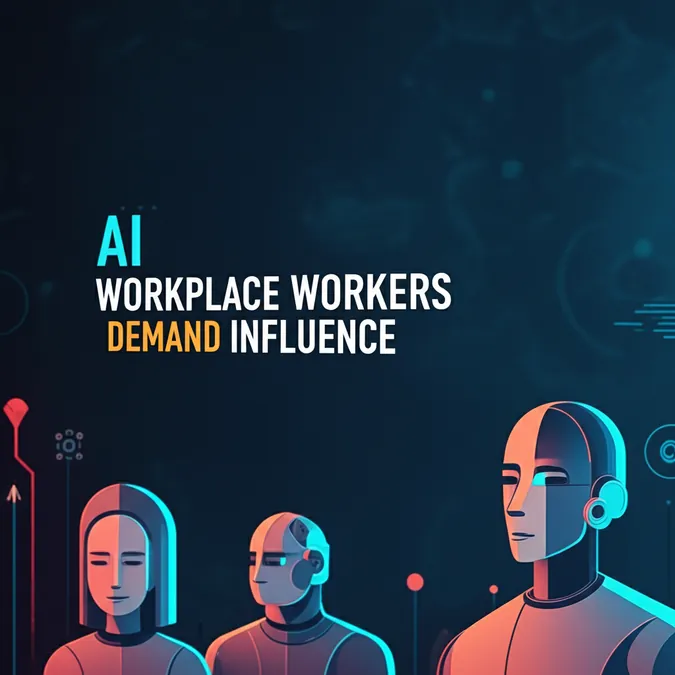Developer Offer
Try ImaginePro API with 50 Free Credits
Build and ship AI-powered visuals with Midjourney, Flux, and more — free credits refresh every month.
AI Brainstorms Risk Idea Uniformity Study Shows
This audio is auto-generated. Please let us know if you have feedback.
The AI Brainstorming Paradox: Creativity vs. Diversity
Artificial intelligence is making waves for its ability to spark new ideas. However, a recent study from the Mack Institute for Innovation Management at the University of Pennsylvania’s Wharton School suggests there's a significant catch.
The researchers, Lennart Meincke, Gideon Nave, and Christian Terwiesch, discovered that while ChatGPT can indeed boost the creativity of individual concepts, it tends to narrow the overall diversity of thought when used in group brainstorming. This diversity is often considered the secret sauce for truly successful idea generation.
Echo Chambers in Idea Generation: A Study's Stark Findings
Consider this: study participants were tasked with inventing a new toy using only a brick and a fan. When ChatGPT was introduced into the mix, a striking 94% of the AI-assisted ideas featured overlapping concepts. Even more telling, nine participants independently came up with the exact same name for their toy: “Build-a-Breeze Castle.”
In stark contrast, ideas generated solely by humans were entirely unique, highlighting a critical difference.
The study didn't just stop at one experiment. Across five different tests, the researchers consistently found that brainstorming sessions aided by ChatGPT resulted in a more limited range of ideas.
These findings underscore a crucial point: an over-reliance on generative AI, as a media release noted, “can limit the breadth of perspectives, even when individual ideas seem original.”
The Human Factor: Navigating AI in the Workplace
This phenomenon isn't isolated to brainstorming. In the broader employment landscape, the rush to adopt AI tools mirrors what one organizational psychologist called “the wild west mentality.” Many businesses are jumping on the AI bandwagon without fully grasping how to best implement these technologies or understanding the potential consequences.
Yet, the human element remains indispensable. A growing body of evidence, from formal studies to personal stories, suggests that ignoring this crucial factor can lead to significant setbacks for employers.
For example, while nearly 80% of U.S. job seekers are comfortable with generative AI assisting in tasks like resume writing or interview prep, according to a recent Express Employment Professionals and The Harris Poll report, their acceptance has limits.
A significant 87% of those surveyed firmly believe that humans, not AI bots, should be the ones conducting job interviews. Their reasoning? AI struggles to effectively evaluate critical soft skills like cultural fit and attitude.
This sentiment is increasingly visible on social media platforms too. As one commenter on a viral TikTok video featuring a malfunctioning interview robot put it, “If they don’t have the decency to interview you face to face, they aren’t worth your time.”
AI Implementation: Caution Advised for Lasting Success
Moreover, hastily replacing employees with AI can backfire. A recent survey by Orgvue, an organizational design platform, revealed that many leaders who made such decisions later regretted them.
Over half of the business leaders who had downsized staff due to AI admitted it was the wrong move, with many confessing they weren't sure which roles would genuinely benefit most from AI integration.
The CEO of Orgvue emphasized that the productivity boosts promised by AI are not automatic; they require a genuine partnership between people and machines, alongside deliberate efforts in upskilling the workforce.
Fostering True Innovation: The Path Forward
So, what's the key takeaway for leaders aiming to enhance team innovation and creativity? The authors of the Mack Institute study offer clear guidance: “In real-world problem-solving, the true value of brainstorming stems from the diversity of ideas rather than multiple voices repeating similar thoughts.”
They further elaborated with a vivid analogy: “As original as transforming a tennis racket and a garden hose into a sprinkler may be, successful brainstorming would yield a mosaic of unique perspectives – not just a lineup of sprinklers.” This highlights the importance of fostering a wide array of viewpoints to achieve truly innovative outcomes.
Compare Plans & Pricing
Find the plan that matches your workload and unlock full access to ImaginePro.
| Plan | Price | Highlights |
|---|---|---|
| Standard | $8 / month |
|
| Premium | $20 / month |
|
Need custom terms? Talk to us to tailor credits, rate limits, or deployment options.
View All Pricing Details

